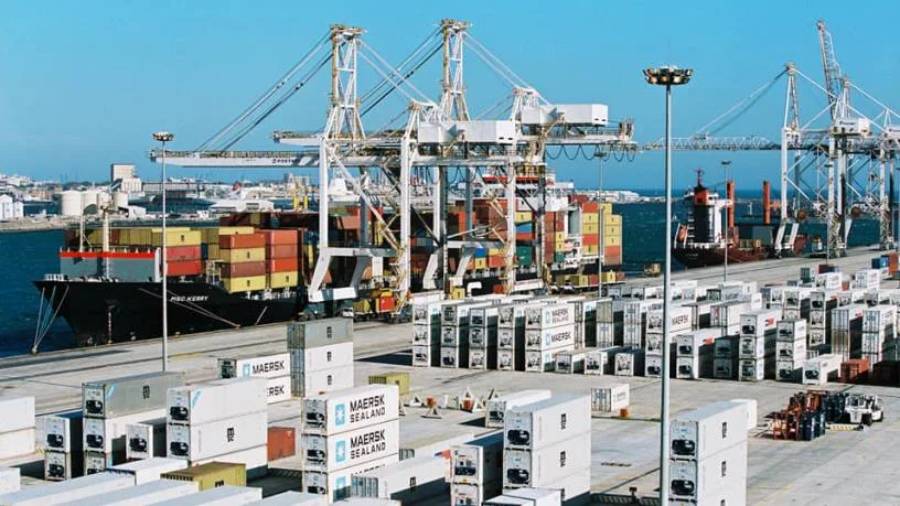Transnet modernises core systems with SAP S/4HANA migration to boost agility and resilience
Postado por Editorial em 24/09/2025 em MARKET & INDUSTRYSouth Africa’s state-owned logistics giant has upgraded its ERP platform from ECC 6.0 to SAP S/4HANA, a move aimed at streamlining operations, enhancing decision-making, and supporting its broader digital transformation agenda.

The successful transition of Transnet Port Terminals is just the beginning, says the company. (Image source: Transnet Facebook page)
Transnet, South Africa’s state-owned company overseeing rail, ports and pipelines, has completed a major milestone in its digital transformation journey by upgrading its enterprise resource planning (ERP) system from ECC 6.0 to SAP S/4HANA.
The next-generation platform, powered by SAP’s in-memory HANA database, enables real-time analytics, simplified data models and the integration of intelligent technologies such as artificial intelligence and machine learning. For an organisation managing complex supply chains across ports and rail infrastructure, these capabilities are seen as crucial to improving efficiency and service reliability.
The migration is part of Transnet’s broader ICT Digital Modernisation Strategy, which includes modernising core applications and preparing the business for long-term competitiveness. The first phase focused on Transnet Port Terminals (TPT), the company’s largest operating division, where all 16 sea-cargo terminals nationwide have now successfully transitioned.
According to the group, the upgrade provides enhanced visibility and control across sourcing, inventory, billing, contracts and credit management. It also strengthens collaboration with equipment manufacturers and supports maintenance agreements, ensuring new capital investments are backed by a robust digital backbone.
Pandelani Munyai, Transnet’s Group Chief Information Officer, described the transition as a “pivotal moment” in the company’s reinvention strategy. “Our move to SAP S/4HANA is more than a system upgrade. It represents a foundation for sustainable growth, operational excellence and innovation across the organisation,” he said.
The migration was executed with minimal disruption to ongoing operations — a notable achievement, given the complexity and risks often associated with such large-scale ERP projects. Many global organisations face delays, overruns or setbacks during similar transitions.
For Dr. Lufuno Raliphada, General Manager for Corporate Services and ICT at TPT, the success reflects both teamwork and technical expertise. “This accomplishment showcases what can be achieved when strong leadership and skilled project teams collaborate with the right partners. It positions Transnet to harness predictive analytics, AI-driven applications and real-time reporting at scale,” he noted.
By simplifying its data structures and eliminating system redundancies, Transnet also expects to reduce the total cost of ownership of its ERP landscape while standardising processes across multiple divisions. The company plans to extend the migration to other operating units in the coming phases, building on lessons learned from the successful TPT rollout.
“This step cements Transnet’s path toward becoming a digitally enabled logistics organisation,” Munyai concluded. “It equips us to respond faster to challenges, unlock efficiencies, and deliver greater value to the South African economy.”




